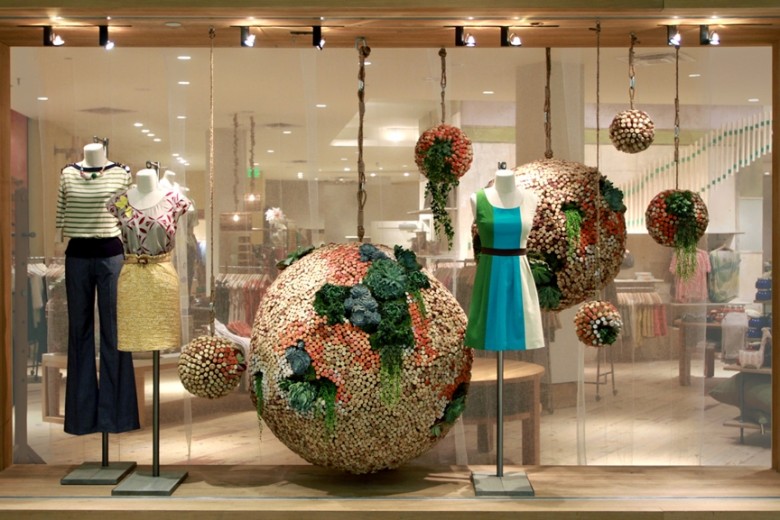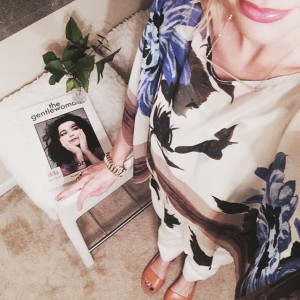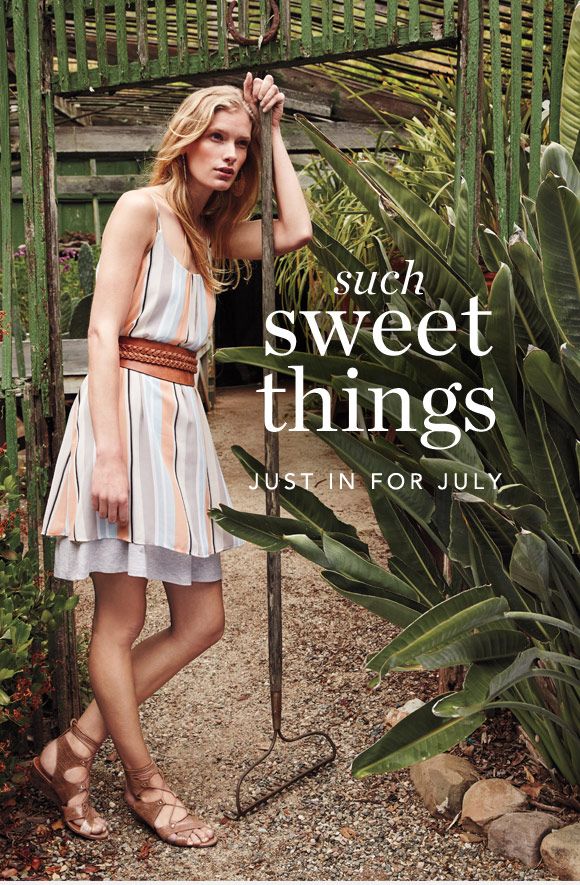In honor of my recent ethical fashion treatise and new creative direction, I’m starting weekly briefings on The Peahen to cover the status of ethical fashion. Each week you’ll get a pulse on new brands, opinions and influencers creating social change in the industry.
Before I start briefings about the obscure and artisan retailers commanding attention in the ethical fashion space, I’ll begin with an audit of a familiar fashion mainstay. The name Anthropologie should strike the heart chords of all the free-spirited, nature-dwellers. I count myself as one of you and, naturally, love the brand of elevated-hippie that Antro represents.
I decided to do an ethical audit of Anthro after venturing by the summer tag sale last weekend and scooping up a few pieces.
As I meandered through the sale racks I began to wonder how Anthro hooks me into this sale every year. Their clothes are eye-catching – striking just the right note of whimsy with a hint of fringe here and an embroidery note there; however, they lack the practicality of staple pieces to command the high retail markup. Take for instance the trench coat-dress hybrid I landed this weekend. Would I buy this at the listed $148? Never. But on sale, I get a versatile piece without the buyers remorse. This may be a sound strategy for my wallet, but was it a sound strategy for ethical business?
The brilliance, and ultimate failing, of the Anthro brand is its ability to market watered-down global goods to the masses.
Take their catalog model as a prime example. Doesn’t she look ethical to you? She’s about to till her own GMO-free garden for God’s sake!
Let’s face the facts, Anthro has major fashion clout, but it’s not delivering the gusto where it matters – ethics. I neglected to audit Anthro before I ventured into their brick-and-mortar escape last weekend. Now, I’m making up for my shopping transgression with some investigative digging into their business model.
Here’s the lowdown.
- Anthro is behind the social times.
- Their social strategy is still in corporate giving or “CSR” mode, when a company allocates profits to a cause aligned with its business. In Anthro’s case, it gives to arts, animals and urban renewal. This strategy fails because it doesn’t account for the impact of Anthro’s business model. More successful brands look to their supply chains, production and product to make positive impact.
- Anthro asks shoppers to ‘skip a bag,’ ultimately placing the burden for do-gooding on their customers. The message Anthro sends is that they care – just not enough to reform their business.
- Anthro fails two ethical indicators.
- Anthro earns a 3/10 ranking on Good Guide based on its health, environmental and social impact.
- Urban Outfitters, Anthro’s parent company isn’t currently listed on Good Guide. UO does dabble in American-made goods; however, their HUGE and public gaffes when it comes to equality, diversity and human rights issues fail miserable. What’s worse? They chalk it all up to good humor.
- Anthro is a marketing behemoth.
- This is especially harmful because naïve shoppers (read, me) can mistake their globally spun brand for a business that practices fair trade and ethical sourcing. Lately, some brands have been converting to ethical practices with more transparency (H&M). For the time being, however, shoppers need to exercise caution with major brands.
- They’re so-so at the materials game.
- My trench/dress was made of viscose rayon, a conventional, semi-synthetic fiber that requires a large amount of water, power and chemicals during manufacturing. Minus one point.
- Urban outfitters and Anthro have both made use of organic cotton and vegan leather in some of their clothing. Plus half a point.
Here’s the consensus.
Until the ethical business model is mainstream, you’ll have keep hunting for artisan made and boutique retailers. That’s where I come in – to help shed light on these disparate labels that are moving ethical fashion into the mainstream. What’s the end-game? You’ll be able to nest in style while reinforcing positive business, environmental and social practices.
Here are some alternative Anthro brands.
Let me know what you think about Anthro’s business practices in the comments.





